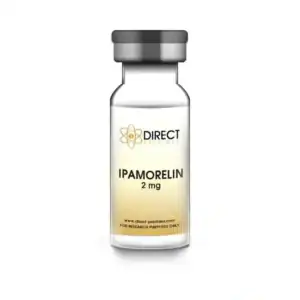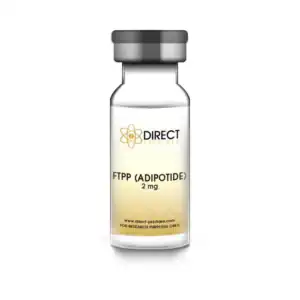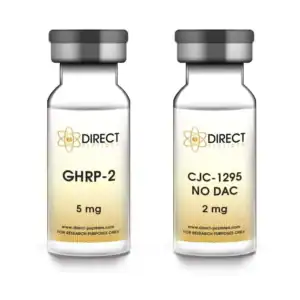Adipotide, also known as FTPP Adipotide or Fat Targeted Proapoptotic Peptide, is a research peptide developed in the United States to address obesity. While still under clinical development, it is currently intended only for research purposes and is not approved for human use.
In clinical trials with monkeys, Adipotide was shown to reduce body weight by 11%, along with decreases in BMI, fatty tissue, and waist circumference. Research has also found that Adipotide can destroy fat cells, leading to weight loss [1].
This represents a significant breakthrough, as obesity is linked to numerous serious health problems, including cancer, diabetes, heart disease, strokes, and mobility challenges. Managing obesity is critical to reducing the many health risks associated with excess weight.
Lithuania Preclinical studies show that Adipotide can effectively destroy fat cells (adipocytes). It works by targeting the blood vessels that supply nutrients to these cells, causing controlled cell death.
Without a blood supply, the fat cells are starved, leading to a reduction in cell size and fat tissue. Simply put, this peptide breaks down fat tissue, leading to rapid weight loss.
Adipotide, a research peptide, blocks the blood supply needed for fat cell growth. This breakthrough is highly relevant in today’s lifestyle, where sedentary habits and the prevalence of processed and fast food contribute to weight gain. The resulting rise in obesity is putting significant pressure on healthcare systems worldwide.
Adipotide is a weight loss peptide that works by targeting and destroying fat cells, potentially helping with appetite control. Animal studies have shown promising results in reducing body weight and fat mass. However, its effectiveness in humans is still being studied and evaluated compared to other weight loss medications.
This peptide has been widely studied and has been shown to reduce body fat by targeting adipose tissue. While most research so far has been conducted on lab animals, the weight loss results are promising [1]. Recent reports indicate that human clinical trials are now in the early stages. There’s still a long way to go, but this could be exciting news for everyone.
So far, clinical trials with the FTPP peptide have shown that it stimulates weight reduction, which is a significant step forward in the development of obesity treatments. However, further testing yields additional good results. These are some examples of the benefits:
In addition to this peptide, several other research compounds are under investigation for their potential applications. These peptides are intended strictly for laboratory research and are not approved for human consumption.
Ipamorelin is a widely studied peptide known for stimulating growth hormone release. It mimics natural processes in the body to support muscle growth, fat loss, and recovery. Researchers are investigating its potential to improve lean body mass and metabolism. Its targeted approach helps minimize unwanted side effects, making it a promising subject for further research.
For more information, Visit Ipamorelin category page.
Tesamorelin is being studied for its ability to reduce visceral fat by stimulating growth hormone production. Early research suggests it may improve fat metabolism and insulin sensitivity. It has shown potential in reducing abdominal fat in people with HIV-associated lipodystrophy, though further studies are needed to explore its broader applications.
For more information, Visit Tesamorelin category page.
CJC-1295 no DAC is designed to boost growth hormone and IGF-1 levels. Unlike the DAC version, it has a shorter half-life, making it suitable for studies focused on short-term effects. Researchers are exploring its potential to support muscle growth, fat loss, and recovery, which could have implications for metabolic and age-related research.
For more information, Visit CJC-1295 no DAC category page.
Hexarelin is a growth hormone-releasing peptide (GHRP) being studied for its ability to stimulate the pituitary gland. It shows promise in promoting muscle growth, speeding up recovery, and even supporting heart health. Some research suggests Hexarelin may have protective effects on the heart, making it an interesting candidate for cardiovascular studies.
For more information, Visit Hexarelin category page.
Some subjects in studies have reported difficulties with the way in which the peptide interacts with the kidneys. Animal tests revealed that it has a deleterious influence on kidney function. However, by altering the dose, this condition was reversible. As a result, no animals were harmed throughout the study, and no kidney impairment occurred in the animals.
Furthermore, the peptide can cause mild dehydration, which could possibly lead to renal failure and other health problems if untreated. FTPP Adipotide, without a doubt, requires more clinical studies before it can be used in healthcare systems as an obesity therapy.
Direct Peptides adheres to good manufacturing practice producing high quality peptides to ensure the most accurate research outcomes. The possibilities of FTPP Adipotide from Direct Peptides are exciting and no doubt future studies will confirm the peptide’s safety profile and potential to reduce adipose tissue, improve insulin sensitivity and metabolic function, providing an alternative to standard treatment options.
Explore Peptide Supplies at Direct Peptides for all your reconstitution requirements.
Ongoing clinical trials explore Adipotide’s impact on substantial weight loss and reduction of white adipose tissue, including its role in treating conditions like prostate cancer.
Research suggests Adipotide, a peptide targeting white fat’s blood vessels and blood supply, may offer a promising avenue for combatting obesity in obese rhesus monkeys, as evidenced in studies involving daily injections in obese female rhesus macaques and addressing safety concerns regarding its effects on reducing abdominal circumference.
The exploration of its efficacy in reducing body fat, body mass index, and improving insulin sensitivity indicates potential for future weight loss drug candidates and treatments, as noted by leading experts, including the Chief Executive Officer of the MD Anderson Cancer Center and Arrowhead Research Corporation. Ongoing updates from research institutions like MD Anderson Cancer Center shed light on Adipotide’s progress in the field of weight loss medications.
All of these peptides Adipotide, Ipamorelin, Tesamorelin, CJC-1295 no DAC, and Hexarelin are for research purposes only and not for human use or consumption. Ongoing studies are essential to better understand their potential uses, safety, and long-term effects.
Buy all Vials from Direct Peptides Lithuania Today!The products mentioned in this post is intended for research and medical purposes only to be used by trained professionals.
[1] Barnhart KF, Christianson DR, Hanley PW, Driessen WH, Bernacky BJ, Baze WB, Wen S, Tian M, Ma J, Kolonin MG, Saha PK, Do KA, Hulvat JF, Gelovani JG, Chan L, Arap W, Pasqualini R. A peptidomimetic targeting white fat causes weight loss and improved insulin resistance in obese monkeys. Sci Transl Med. 2011 Nov 9;3(108):108ra112.
[2] Kim DH, Woods SC, Seeley RJ. Peptide designed to elicit apoptosis in adipose tissue endothelium reduces food intake and body weight. Diabetes. 2010 Apr;59(4):907-15.

BULK BUY
Ipamorelin Peptide Vial
£12.38 – £77.15Price range: £12.38 through £77.15 Select options This product has multiple variants. The options may be chosen on the product page
Hexarelin Nasal Spray
£22.58 – £40.17Price range: £22.58 through £40.17 Select options This product has multiple variants. The options may be chosen on the product page
FTPP (Adipotide)
£20.17 – £73.15Price range: £20.17 through £73.15 Select options This product has multiple variants. The options may be chosen on the product page
GHRP-2 & CJC-1295 NO DAC Peptide Stack
£27.25 – £36.23Price range: £27.25 through £36.23 Select options This product has multiple variants. The options may be chosen on the product page
ALL CONTENT AND PRODUCT INFORMATION AVAILABLE ON THIS WEBSITE IS FOR EDUCATIONAL PURPOSES ONLY.
DISCLAIMER: These products are intended solely as a research chemical only. This classification allows for their use only for research development and laboratory studies. The information available on our Lithuania Direct Peptides website: https://direct-peptides.com is provided for educational purposes only. These products are not for human or animal use or consumption in any manner. Handling of these products should be limited to suitably qualified professionals. They are not to be classified as a drug, food, cosmetic, or medicinal product and must not be mislabelled or used as such.